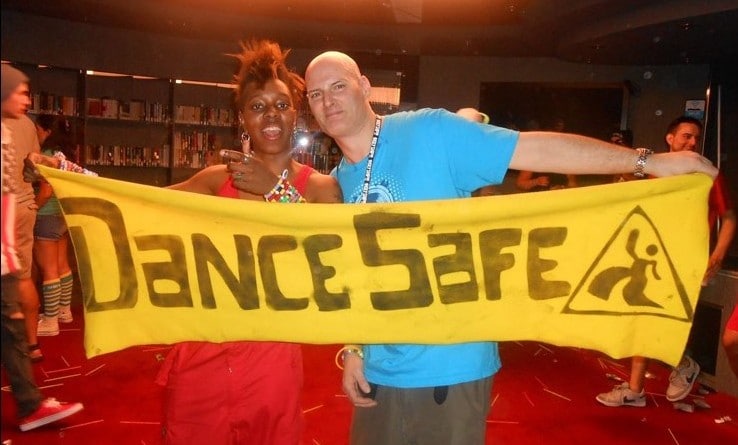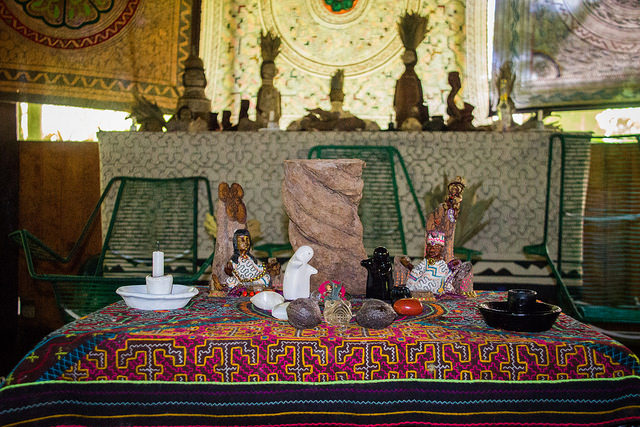
Couples who have a difficult psychedelic experience together may benefit from the help of an integration therapist. Image source: publicdomainpictures.net CC user Karen Arnold
I remember taking MDMA with a long-term boyfriend of mine. We were deeply in love and, since he had never taken MDMA before, I wanted to be the one to guide him through his first experience. Unfortunately, the experience was not as thrilling as we had hoped, and my boyfriend did not experience the same level of openness and physical ecstasy as I did. Instead, he felt jealous and expressed some frustrations with our relationship that I was not prepared to hear. Rather than feeling more connected, I came out of the experience questioning whether we were right for each other. A short time later, we broke up. This type of situation is not uncommon among couples who choose to take MDMA together because of its ability to increase prosocial feelings and bonding. While it can be a positive experience for some couples, for others it can be disappointing or actually harmful to the relationship.
Because MDMA is not currently available in legal settings, such as in therapy or counseling, many people take it in less-than-optimal settings without proper preparation or adequate understanding of the substance. If you and a partner have experienced a similarly challenging situation while taking MDMA, it is important to realize that integration therapists can help you process your experience and heal your relationship.
When “The Love Drug” Isn’t
MDMA is often referred to as“the love drug” because, in many ways, it mimics the physical and emotional sensation of being in love by triggering the release of hormones in your brain such as dopamine, serotonin, and oxytocin. This combination of hormones usually works together to make you feel positive, euphoric, and prosocial. At the same time, it decreases your ability to recognize fear and anger. All of this combines to create a sensation very similar to that of being in love.
But it is important to note that MDMA does not produce the same results in everyone. Recent research has shown that women react differently than men and often exhibit greater sensitivity to positive emotions but also more anxiety while using MDMA. This may explain why my boyfriend failed to reach the same emotional and physical state that I did and why I felt anxious that he was not enjoying himself.
Each individual will also react differently to the substance. Oxytocin, which many researchers believe to be responsible for the bonding aspect of MDMA, can cause different reactions in individuals based on their genetic makeup as well as their past interactions with the people they are with or thinking about. So while most people will expect to experience feelings of love and well-being while on MDMA, some will not. This can cause disappointment and confusion, as it did for me and my partner, and it may be necessary to have the help of a professional to understand why the desired effect was not obtained.
Understanding Why You Had a Difficult Experience
Besides the physical differences among individuals, your MDMA experience may also have been less than ideal due to improper dosage, impure substances, or murky expectations. Even with proper testing of the substance and appropriate dosages, when psychedelics are used without the guidance of a professional, couples often fail to achieve a healthy mindset and setting before taking it.
With regards to mindset, many couples don’t discuss what they expect to experience while using MDMA, or they have rigid expectations based on previous experiences. Some people may expect to feel sexual while using MDMA and feel disappointed if they end up wanting only non-sexual touch. Or perhaps one partner expects to have sex while the other is not interested. Defining your expectations before a psychedelic experience is always important, but when embarking on a journey with another person, it is particularly crucial to clearly discuss your intentions and set boundaries beforehand.
The setting is usually easier to control than your and your partner’s mindset. Taking MDMA in a controlled environment improves your chances of having a positive experience, but MDMA is also often consumed at parties and festivals, which gives you little control over the setting. For couples, this can be difficult because being around lots of other people can produce feelings of jealousy and awaken desires the couple may not have been aware of before. You may feel like kissing someone other than your significant other or cuddling closely with your friends, or perhaps you realize you would like more social interaction than your partner is providing. All these feelings can lead to resentment within the relationship.
After a difficult MDMA experience, an integration therapist can help you and your partner identify aspects of the set and setting that may have contributed to your challenging experience. This can help you bypass feelings of guilt, disappointment, and resentment and see the experience as a single experience as opposed to a defining moment of your relationship.
Deciding On Individual or Couples Therapy
Depending on the specifics of your experience and your current relationship, you may want to seek integration therapy after a difficult MDMA experience. Usually, therapists work with patients one-on-one to better understand how psychedelics work, how to set intentions while letting go of expectations, and how to recover from difficult experiences. This can be helpful if you are having difficulty processing your experience but your partner is not, or if you have some insecurities that came up during your MDMA experience that you are not comfortable sharing with your partner. Individual therapy can also be helpful if you are no longer with the partner you shared the experience with.
Some psychedelic therapists may also offer integration therapy for couples. This will involve discussing your specific MDMA experience as well as general relationship issues such as jealousy, lack of trust, or sexual dissatisfaction. Couples therapy can be a good option if you and your partner both recognize that the experience negatively impacted your relationship or if you intend to continue pursuing psychedelics together. If you decide on couples therapy, your therapist may want to meet with both you and your partner individually before beginning to explore the experience together.
How Your Difficult Experience May Benefit Your Relationship
It is important to realize that even if you had a difficult MDMA experience with your partner, you can still get positive benefits with the help of integration therapy. As with most psychedelics, the difficult emotions or thoughts experienced while on MDMA likely reveal real desires, insecurities, or frustrations you may have failed to recognize before. Instead of writing your experience off, reflecting on these emotions and working to integrate them as a couple can help you foster greater empathy, better communication, and increased bonding.
I spent a lot of time reflecting on that particular night with my boyfriend. Even though we broke up soon after, the MDMA experience taught me a lot about myself and my needs in a relationship, especially around the concept of jealousy and monogamy. This self-knowledge has helped me cultivate healthier relationships since then. It has made me realize that the way you process a psychedelic experience can be as powerful and important as the experience itself. For many couples who have a challenging MDMA experience together, the self-reflection and deeper understanding provided during integration therapy can turn it into a positive, meaningful experience.










